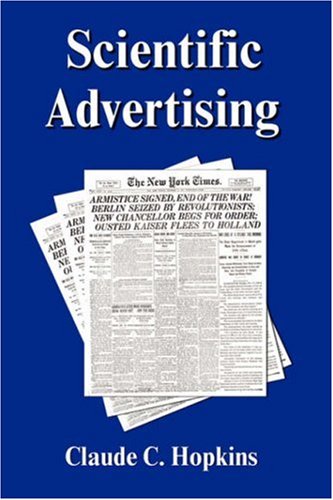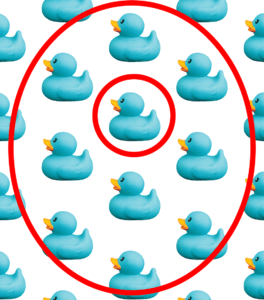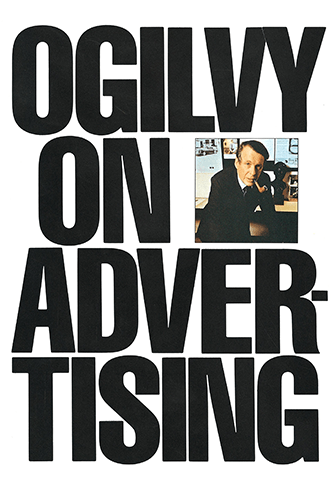Here are 7 useful advertising principles to help you improve your content from the fundamental advertising book of Claude Hopkins – Scientific Advertising. (1923) which is recommended by the giants Garry Halbert and David Ogilvy.


1. Test, test, test

The main idea in the book is that advertising should be scientific. What does it mean?
Well, only when you can prove that your ads(Content in our case) are profitable(Provides leads in our case), you should use them.
For example: There’s much advice both in favor of short and of long blog posts. But, to really know which ones work better, we should stop blindly relying on advice from authors and test it for ourselves with our audience and see which ones bring more leads.
To apply: That means we should add the launching of an ad after each blog post to our blog posting process, to compare their effectiveness.
2. Ads are sales in print
When you’re writing an ad, consider the following question in every line you write.
“Would I tell this to a prospect in a face-to-face conversation if I was a salesman?”
Because of the similarities between salesmen and admen, often the most successful admen are ones who were successful salesmen, according to Hopkins.
"Many of the ablest men in advertising are graduate salesmen. ... They may know little of grammar, nothing of rhetoric, but they know how to use words that convince. "
For example: Give enough information for the people to get to action, don’t be too brief, just as you wouldn’t limit the amount of words a salesman says. My best example is “What will happen when I fill out this form?” video on some of my landing pages, which elaborates a little, instead of being too concise.
3. Headline directed only to your potential customers
Forget “Everyone”. Often you may get lots of reads, but very few sales, because you aim to get the attention of as many people as possible in the headline.
On the contrary, if you focus on attracting the people who are more likely to buy your product, you will very likely get less readers attracted, but a lot more sales(or leads) overall, and therefore, more impact.
For example: Everybody Writes – 7 Tips for Your Next Blog Post Not Everybody Writes – Writing Guide
4. Specificity equals credibility

When you say “The best toothpaste” it may appear as an unbased exaggeration, because as a salesman, you are expected to exaggerate so that you could sell your product.
People know that this exaggeration often happens and forgive you, but they discount from your words because they feel that you’re overstating things.
On the other hand, if you write “The toothpaste that kills 99% of germs” it is more credible. Because when the advertiser states specific facts it is perceived that either he is lying or telling the truth. And since people don’t expect you to lie (because it will ruin your reputation) it is perceived as the truth, and has a stronger effect than the former.
5. Beautiful vs. Selling ads
"'If it doesn't sell, it isn't creative"
Common to Ogilvy and Hopkins is that they both assure us that an adman’s job is to sell (Or for my philosophy – Get leads, which will transform into sales down the road hopefully). Often it means that the ad will look bland and serious, but if that is what sells, don’t look for ways to be super artistic.
6. Long Copy vs. Short Copy
"If you had one shot, or one opportunity To seize everything you ever wanted One moment Would you capture it or just let it slip?"
Include every possible claim that may overcome objections in your copy (Landing sales page) because you may (and likely will) get the attention of the reader once, in which case it will be useful to hit him with everything you’ve got, so that you overcome his objection.
For example: I’d say (as a rookie who doesn’t have a sales page) that if you’re looking to make a sales page, google “Long copy sales page”, you’ll surely find some templates. Then, after testing some statements, remember to include all the statements that might overcome objections in the same sales page.
7. No Selling, Just Service
When someone feels sold to, they raise their defenses. People don’t want to feel you’re pressuring them to serve you, they want to feel served.
Therefore, always offer them value, better for free, so that as a result of your great advice they would start to trust you, and look for your paid services as a natural outcome when they need them.
For Example: I’m the ace of no selling since I have no product… So every landing page and lead magnet you’ll find here below is a great example of this principle.
Conclusion
"Groping in the dark in this field, has probably cost enough money to pay the national debt"
Knowing that you’re doing the right thing is an amazing feeling. You then know that you just have to continue doing what you’re doing and success is assured. It is possible, according to Hopkins. But, it seems that it will require some no small initial testing effort on our part.
P.S. If you’re more of a numbers kind of guy here’s why I rated this book 64/100
Related Articles

Ogilvy on Advertising – 5 Things I applied and How you can too
5 Things you could actually, truly apply (as a content creator) from the lessons of David Ogilvy’s book – Ogilvy on Advertising (1985) Note: The book